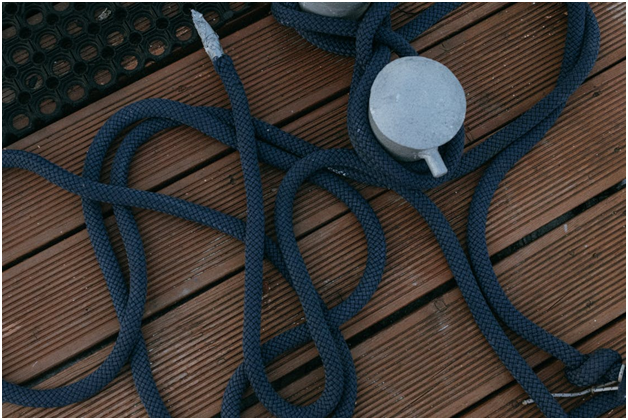Answering a Few Questions on 8 AWG Marine Battery Cable
10th Jan 2022
Using the proper electrical wire or cable is critical not only to the sustainability and operability of electrical systems but also to safety. In marine environments (that is, onboard boats and ships) there are a number of mission-critical electrical systems and components the functionality of which are required, not only by law but as a matter of safe navigation. These include but are not limited to navigation lights, navigation systems, depth sounders, and if the vessel is equipped with them, radar or sonar systems. Of course, electrical power is also necessary to run the engines.
Because of the criticality of delivering an uninterrupted electrical power supply onboard vessels, it is imperative to use the proper electrical wire or cable to complete wiring on boats and in marine environments. In this post, we’ll take a closer look at marine battery cable in general, and answer a few questions, such as those associated with certain gauges, such as 8 AWG marine battery cable.
What Is the Purpose of Marine Battery Cable?
Generally speaking, the purpose of marine battery cable is to provide power onboard oceangoing vessels although marine wire is can also be used in any maritime environment,
The two most significant attributes of marine grade battery cable are a high level of flexibility and an extra level of resistance to corrosion.
For one thing, marine-grade battery cable is made with a very high number of individual copper conductors, which attribute makes it exceptionally flexible. This greater level of flexibility makes marine cable less like to fatigue due to vibration and flexing, which is a constant stressor in vessels in motion on open water.
In addition, the higher strand count and subsequent flexibility also make it easier for the cables to be drawn through and around tight spaces in order to complete necessary connections, all with a lower likelihood of fatiguing due to similar stresses. Remember, there is not a lot of clearance in spaces within vessels, and wire and cable must navigate them.
The other main attribute of marine-grade battery cable is a high level of resistance to corrosion. To accomplish this, the wire is manufactured with individually tinned copper stranding for maximum protection against corrosion. This helps the wire better stand up to the harsh elements and corrosive agents found onboard vessels.
Marine-grade battery cables may also be resistant to heat and abrasion, and ours are also resistant to oil and gasoline as well as alkali and acids. They are also UL, ABYC, and U.S. Coast Guard approved.
What Size Marine Battery Cable Should I Use?
The size (wire gauge) that you should use for a given marine application depends entirely on the circumstance. The American Boat and Yacht Council suggests using wire not smaller than 16 AWG for the wiring of lights and other electrical equipment. Consequently, the smallest marine wire gauge you will find here at EWCS Wire is a UL-approved 16 AWG primary wire rated at 600 volts.
It is important to remember that the smaller the AWG of a marine battery cable and the longer the length of the wire you use, the greater voltage drop your system will experience. The shorter the run and the greater the AWG, the less voltage drop you will experience. It’s also important to note that you can use a larger AWG than required (for example, 8 AWG marine battery cable if 10 is required since 8 AWG has the greater current carrying capacity and voltage rating) but not the other way around.
On smaller vessels, two systems that will draw a lot of power are windlass systems and bilge pumps. The size you will need will vary upon the power of the motors that operate these, but it is not uncommon to need 10 AWG or even larger 8 AWG to safely wire them. Again, that is not a binding guideline; consult an experienced electrician before attempting to complete any wiring yourself. Power distribution panels will also require larger AWG wires. Consult the system’s installation guide for more information, and expect to use larger AWG marine wires, such as 8 AWG marine battery cables.

Questions? Call Us!
It is important to remember that the unique particulars of the circumstances are what will dictate what electrical cables can and cannot be used safely in a given situation. Do not assume that a particular cable can be effectively used without confirming with an experienced electrician or electrical engineer.
If you’re interested in learning more about the high-quality, highly corrosion-resistant, and flexible type marine battery cables we sell here at EWCS Wire, please feel free to get in touch with our customer service team for additional information. You can reach us by phone or email at 800-262-1598 or at Sales@EWCSWire.com, respectively.

